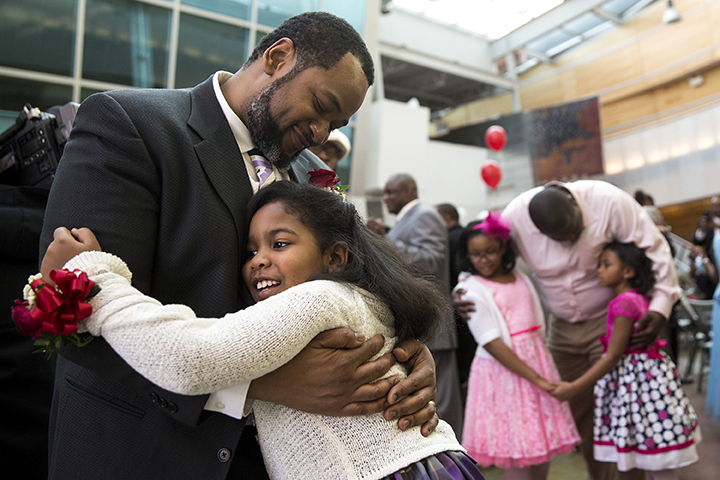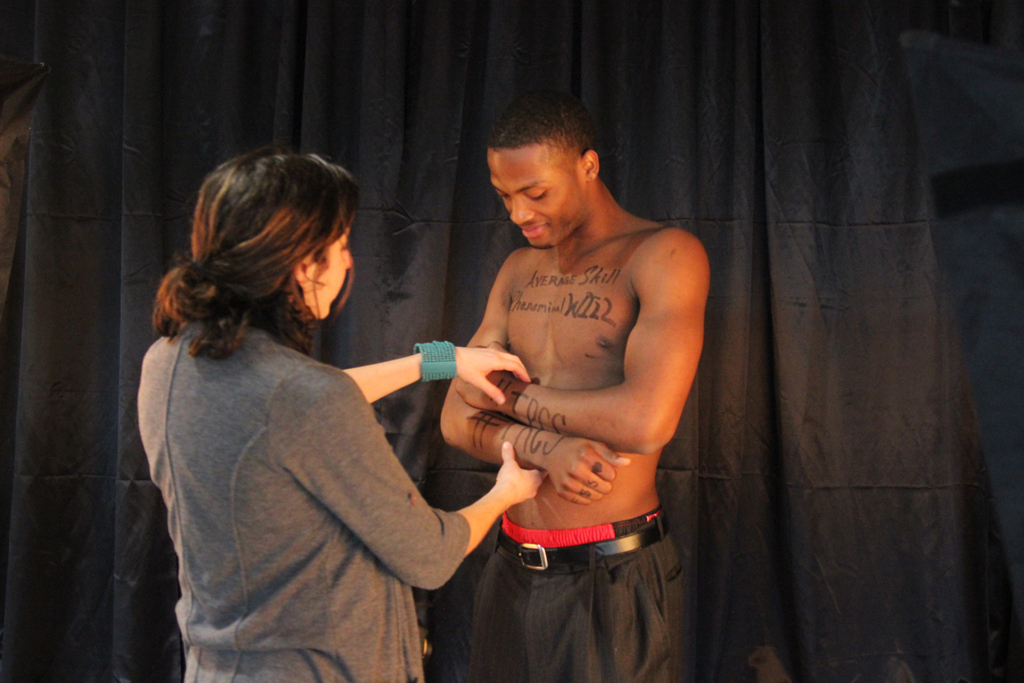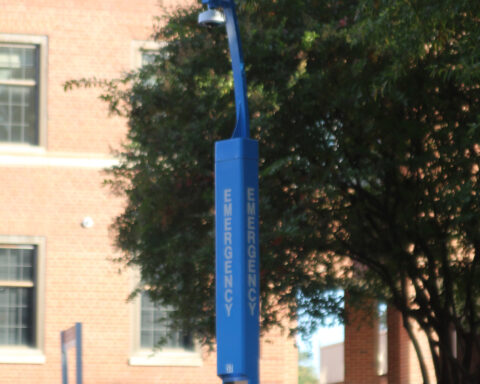According to the U.S. Census Bureau, 24 million children in America—one out of three—live without their biological father in the home.
On March 31, a group of students made up of mostly males, gathered in the Alfonso Elder Student Union lobby for what turned out to be a much needed venting session for everyone.
The event, Future for Fathers, hosted by the Men’s Achievement Center, was meant to discuss “the past, present, and future relationships pertaining to fatherhood.”
After arriving and signing in, students were split into three groups based on which category their father falls into: absent, present, and in and out. The group students were in was an important factor throughout the event.
Before anything kicked off, some of the coordinators and students introduced themselves and spoke briefly about their relationship with their father or if they had one at all.
Throughout the event, Director of the Men’s Achievement Center Dr. Harvey Hinton III, asked questions for students to discuss within the group they were initially assigned to.
Everyone was to discuss the question and answer individually among their groups. After discussing, one person from each group was asked to answer for the group as a whole based on the most popular answer.
They asked questions like “What role does your father play in your household?”
Some answered that their fathers are their protectors and advisers.
Others said their mothers played both the role of a mother and a father.
These kinds of questions need to be discussed, as studies show the role of a father plays a significant part in a child’s wellbeing.
According to the U.S Census Bureau, children who grow up without their fathers are four times more likely to grow up in poverty and more likely to suffer with emotional and behavioral problems.
“Not having my father present in my life affected me mentally and psychologically. Sometimes I find myself being jealous of children who do have that relationship with their father,” said Darrius Moye, criminal justice and psychology freshman.
Moye also said he often finds himself wondering ‘what if?’
Although statistics show that some men who grow up without their fathers in their lives struggle mentally and emotionally, not all fatherless men grow up to be lost, troublesome or incarcerated.
Take President Obama, for example. He’s spoken several times about the absence of his father, and he defeated the odds to become the first black President of the United States.
Melquan Ganzy, mass communication senior, sat in the “in and out fathers” category with several others.
“Having my father in and out of my life as a child no longer affects me. I used to be hurt about it, but now it just pushes me to be better and work harder,” Ganzy said.
In society, there’s often an assumption that black men struggle with being fathers and that they neglect their children, because they may not live in the same household. But in reality, the issue is much more complex.
“I think people are not being realistic. Just because a man has kids out of wedlock and lives separately it doesn’t make him less of a father,” said Stewart Johnson, program coordinator of the Men’s Achievement Center.
Although black fathers are more likely to live in separate households, according to according to pewsocialtrends.org, 67 percent of black dads who don’t live with their kids see them at least once a month, compared to 59 percent of white dads and just 32 percent of Hispanic dads.
However, fatherless households aren’t just a ‘black thing.’ It often gets portrayed as a problem only in the black community because more black men are incarcerated.
And when we mention missing fathers in the black community, we often forget about these men who are taken away from their families.
One in nine black children has a parent in prison, compared to only one in 57 white children, according to tcf.org. Those prisoned parents aren’t voluntarily absent from their children’s lives.
A chart displayed during the event comparing Latino, black, and white fathers busted a common myth.
Data provided by the Center of Disease Control shows that African American fathers spend more time in their children’s day-to-day lives than dads from any other racial group and in similar living conditions, although black fathers are more likely to live in separate households.

















